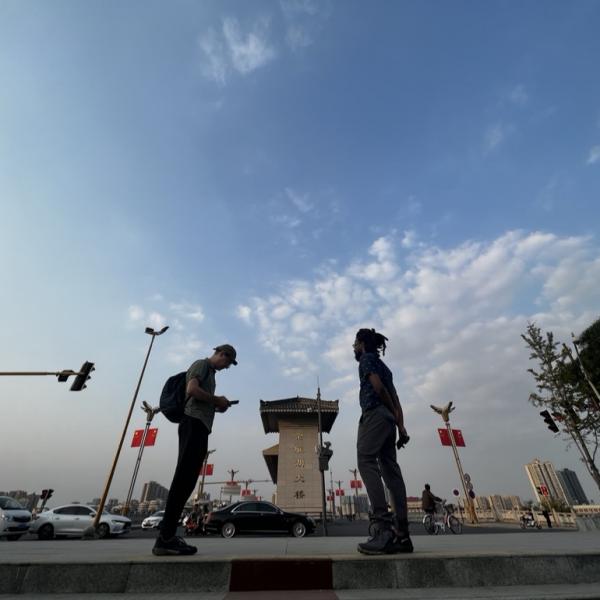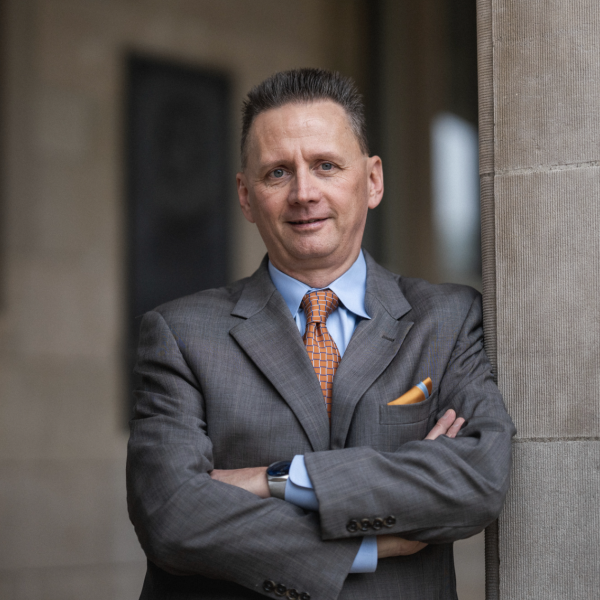By Jeff Kang
Dr. Konig Interview:
On March 7th, I had the pleasure of interviewing Dr. David Konig, who holds simultaneous appointments in the History Department and Wash U School of Law. Dr. Konig specializes in researching and teaching American legal history. He has taught Freshman Seminars such as “The Enigma of Thomas Jefferson” and upper level history courses such as “Law in America: 1776 to the Present” and “Historical Methods.” In addition, he has written historical books and analytic articles that give much insight, information, and perspective on revolutionary America, American constitutional history, Thomas Jefferson, James Madison, the Second Amendment, and most importantly, the debate over “the right of the people to bear arms.”
For a little over twenty minutes, I conversed with Dr. Konig about the issues of gun control and gun violence, the death of Judge Antonin Scalia and nomination of a new Supreme Court Justice, and whether America is a Christian nation or not. The discussion enabled me to attain a clearer understanding of the factors that created and developed these political problems.
Before I address the questions, I want to thank Dr. Konig for the marvelous interview. In addition, I encourage students to visit his office, talk to him, and ask questions regarding American law; this is his next-last-year teaching at Wash U and he will be retiring after two more semesters. I urge all students to take the rare opportunity to chat with a scholar who can influence one’s outlook on American law and American history.
Many of your articles focus on the Second Amendment of the United States Constitution and the right of the people to bear arms. From what I understand, within your work, you argue that the United States government’s assent to permit citizens to bear arms today is a misinterpretation of the Second Amendment. Could you expound on this claim?
Professor Konig:
The question that one needs to ask here is “what exactly is the right to bear arms?” In order to answer this question, one needs to take a look at the preamble to the amendment itself: “A well-regulated militia, being necessary to the security of a free state, the right of the people to keep and bear arms, shall not be infringed”
There is an important message imbedded within the text about the right to bear arms: it is to be part of a “well-regulated militia.”
The Second Amendment precisely explains that this allusion on the right to bear arms only applies to the militia. So, the Second Amendment gives the militia the right to bear arms and grants every citizen the right to join the militia. Right after our forefathers created the United States, there was a fear that the federal government would disarm all state governments by taking away their right to bear arms. Citizens, who had just gone through a wearisome war for independence worried that the disarmament of states and the centralization of the government would lead to the establishment of a tyranny.
In other words, the Second Amendment was a formal decree that prevented the federal government from infringing on states’ rights. Also, by stating that states can organize militias and permit citizens to bear arms, the constitution was striving to claim that all citizens were equal before the law. It didn’t matter whether you were a Catholic or a Protestant; you could join the militia.
Hence, the Amendment asserts that states have the obligation to effectively run and regulate militias by founding codes, rendering militia members to meet regularly, and making sure that they are ready to fight against enemies. I like to compare the Second Amendment to the right to serve on a jury. One cannot be debarred from serving on a jury; it’s as simple as that.
The Supreme Court today has misinterpreted this clause and has used it to give individual citizens excessive rights to bear arms. There is a clear difference between a long rifle that takes a few minutes to load and an assault rifle that shoots a few hundred rounds a minute.
Then why do some politicians and citizens, who clearly know about the meaning behind the Second Amendment and the country’s current gun problems, protest against the enhancement of gun control?
Professor Konig:
It’s an irrational fear to tell you the truth. It’s a fear that causes certain people to assert that the government should not limit good, law-abiding citizens from holding arms. However, there are three problems with this assertion.
One is the belief that these lawful citizens ‘need’ weapons. This notion arises from the reality that many people distrust the government. Due to this distrust, certain citizens feel that they must protect themselves by having arms ready. This idea is related to the “Castle Doctrine,” which signifies that a citizen has the right to protect all of his possessions by using force. This ideology can cause ridiculous circumstances to occur, in which people shoot others on the derisory supposition that they are being threatened.
The second problem is that these apparently lawful citizens get their weapons stolen. Many crimes and shootings occur because criminals steal weapons from random homes and kill
people by using them.
The third problem is suicide. Some people argue that gun possession does not have any effect on the escalation of suicide rates. This is simply not true; studies done on this field have shown that having a gun can increase the likeliness of a person to commit suicide. Accidental death is also a problem related to gun possession. It is a tragedy that children have been killed due to accidental shooting incidents.
Recently, the death of Supreme Court Justice Antonin Scalia and the debate over nominating the next judge have been recurrently appearing on the news. Article 2 of the United States Constitution states that the president has constitutional right to nominate a Supreme Court Justice with the consent of the senate. How does this right affect the current situation? What would happen if the senate does not agree? How does the nominating process exactly work?
Professor Konig:
Good question. First things first. Yes, the president has the constitutional right to nominate a judge. In fact, I believe that he has a constitutional obligation to appoint a judge. The major issue is that there is tension within the senate between the Democrats and Republicans on who the nominee should be. Justice Scalia was a conservative and Republicans are trying to prevent the nomination of a very liberal judge.
Nevertheless, if the president garners the majority of the senate to agree with his choice, his nomination would become actualized. Yet, the opposing members of the senate can initiate a filibuster, which is a process of delaying the enactment of a vote by having individuals debate for an unlimited amount of time. Although a filibuster can be overridden if 60% (or more) of the senate agree to end it, undergoing a filibuster is never a good sign because it suggests that two different parties are stalwartly disagreeing on a specific issue. This is why the president is trying to choose a nominee that has a very moderate political outlook.
Some members of the Republican Party have argued that there has been an American tradition not to nominate judges during the last year of a presidency. Is this true?
Professor Konig:
Certainly not. There have been cases in which presidents nominated Supreme Court Justices during the last year of their presidencies.
Not long ago, I read a New York Times article – written by Norman Wirzba, a Duke Divinity School theology professor – titled, “Why we can now declare the end of ‘Christian America.’” The writer mainly argues that the United States no longer promotes Christian virtues such as humility and generosity. He states that the 2016 presidential race and rise of Donald Trump denote the end of Christian America as citizens respond to anger more than love and peace. What do you think of his argument? Is America not a Christian nation anymore?
Professor Konig:
The question that we must ask here is “Was America ever a Christian nation?” In my opinion, the answer is no. Before the Second Barbary War, there was diplomatic and political tension between Muslim pirates of North Africa and the United States Navy. The Barbary States were claiming that they were obliged to declare war on the United States because it was a Christian nation. In order to rebuke this argument, James Madison made it very clear that America is not a Christian nation.
Ultimately, the United States was not a Christian nation, but its citizens saw it as a nation of Christians. These two phrases have very different meanings. Furthermore, the definition of Christianity during the period of United States’ foundation was very fragmented and unsettled. Thus, it is not necessarily correct to describe the United States as a Christian nation. All religions within the United States have equal value and status.
A final question: why should one study legal history? What makes legal history so special?
Professor Konig:
As you stated in your last article on why one should study history, history encourages people to ask “why?” Yet, legal history urges one to ask “how?” Studying legal history can guide individuals to not merely ask questions to understand why an event occurred, but take a step further to investigate how specific incidents, procedures, and actions that caused an event to occur.




